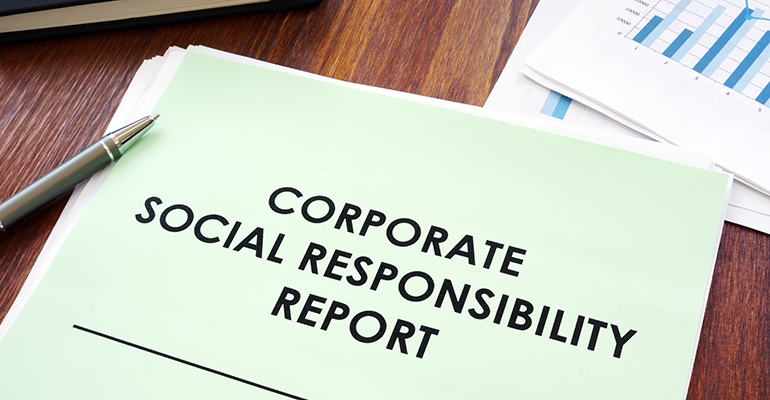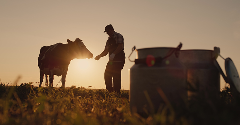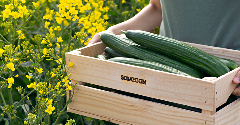News
Brands must start preparing for EU sustainability rules, says Deloitte
27 Feb 2023
The upcoming EU regulation on corporate sustainability is going to change the way the food industry does business. “Start thinking about this now,” urges Emily Cromwell, sustainability partner at Deloitte.
The EU Directive on Corporate Sustainability Due Diligence focuses on human rights, labour, and the environment, calling on manufacturers to gain a full understanding of how this works in their supply chains. The Directive applies to EU and non-EU companies that meet thresholds relating to turnover and number of employees.

The Due Diligence Directive signals a heightened focus, implementation of measures and the introduction of sanctions and civil liabilities to ensure the effective protection of human rights included in international conventions.
Financial reporting regulations will be closely intertwined with the business implementation of sustainability. Areas such as decarbonisation, biodiversity, and waste management will be connected and need the same rigour as current financial reporting. Subsequent reporting will be closely connected to food businesses’ decisions, policies, and actions.
“It is going to be very important that you treat these as bookends and that you don’t make a plan, a strategy or begin a project that doesn’t consider one without the other because they are truly mutual and unable to be separated,” said Emily Cromwell, climate change and sustainability partner and environmental, social and governance lead at Deloitte, speaking to attendees at Fi Europe 2022.
Businesses reporting on their sustainability strategies need to have a baseline for their key performance indicators (KPIs) and implement specific methodology to produce an all-encompassing, transparent, and accurate strategy.
A broader definition: Sustainability includes social governance
“Sometimes, when talking about sustainability, we focus so much on climate change and carbon, sometimes we miss the social and governance side,” said Cromwell.
 © AdobeStock/Vitalii Vodolazskyi
© AdobeStock/Vitalii Vodolazskyi
From a labour and human rights perspective, one of the challenges is that implementation varies in different countries. “There will certainly be an expectation that you understand multiple tiers of your supply chain,” said Cromwell.
Beyond working with tier one suppliers, passing information on contractual clauses and engagement will be vital amid expectations for transparency and product traceability to source.
Food manufacturers must consider how they protect their businesses and drive good behaviour that increases stakeholder capitalism, which creates confidence, safety, and security in the supply chain. Implementation can involve contractual clauses, supplier engagement and making difficult decisions regarding cost versus ethics.
Cleaning up environmental, social, and governance (ESG)
Conduct a risk assessment and understand what commodities and suppliers are most at risk of presenting a human rights violation. Look at updating enterprise risk management programmes, supply risk assessment questionnaires and technology.
 © AdobeStock/Blue Planet Studio
© AdobeStock/Blue Planet Studio
“That identification piece is very process-oriented, it is diligence, but you are also expected to prevent mishaps or issues in your supply chain,” said Cromwell.
Health and safety programmes foster good corporate governance, for instance.
“But whether you are [...] far along in your human rights and supply chain risk and labour and due diligence journey or whether you are beginning, I would just urge you to start thinking about it now,” Cromwell adds.
Quality systems with policies, procedures, checklists, and contractual clauses must comply with the legislation. For broader ESG topics, identify strengths, gaps, resources required, skillsets and underpinning technology and data.
The legislation will affect many facets of food businesses and feature many requirements for supply chains. Therefore, it is essential to start early, consider building a proof of concept, see how your business reacts, iterate, and consider the specific practical steps to implement to overcome hurdles.
“Social issues and human rights are absolutely as critical as the environmental side of ESG, and there is a real face to this,” Cromwell adds.
Related news

Soy story: WWF scores UK supermarkets on sustainability efforts
12 Nov 2025
WWF has published its latest “Soy Scorecard”, ranking UK supermarkets’ efforts to combat deforestation and land conversion in their soy supply chains.
Read more
Standing Ovation and Bel scale up casein production from dairy co-products
11 Nov 2025
Foodtech company Standing Ovation has partnered with cheese specialist Bel Group to manufacture dairy serums for industrial-scale casein production via precision fermentation.
Read more
New UPF standard hoped to offer consumers ‘coherence and clarity’
10 Nov 2025
Ingredients companies are being urged to enter “a new era of partnership and innovation” following the launch of the industry’s first non-UPF verification scheme.
Read more
Whistleblowers accuse UK meat industry of promoting cheap, unsustainable supply
7 Nov 2025
An anonymous group of industry insiders has accused the UK’s biggest food companies of systematically driving down meat quality and welfare standards.
Read more
Bord Bia presents Irish dairy ingredient suppliers at Fi Europe
6 Nov 2025
Dairygold Co-operative Society, The Carbery Group, and Ornua Co-operative: Meet with sustainable producers of Irish dairy ingredients at Food ingredients Europe 2025, Hall 7.2 Stand M18.
Read more
AI attraction means foodtech startups must ‘prove’ rather than ‘promise’
4 Nov 2025
Reports suggest that artificial intelligence (AI) is sucking investment from foodtech and agritech, but investors say the picture is complicated.
Read more
Penguin and Club bars no longer classed as chocolate
30 Oct 2025
Penguin and Club bars can no longer be classified as chocolate after the pladis-owned McVitie’s brands turned to cheaper alternatives amid the ongoing cocoa crisis.
Read more
Could plant-based protection replace plastic packaging?
29 Oct 2025
Swedish foodtech company Saveggy has launched an additive-free plant-based protection for cucumbers, offering a waste-free packaging solution for fruit and vegetables.
Read more
Does promoting protein content push up plant-based sales?
27 Oct 2025
Promoting the protein content of meat-free products is a more effective sales strategy than adding carbon labels, a study of UK bakery chain Greggs suggests.
Read more
Amazon Grocery launch aims to balance quality with affordability
22 Oct 2025
Global e-commerce giant Amazon has introduced a new private-label food brand, combining existing Amazon Fresh and Happy Belly products with new everyday items.
Read more